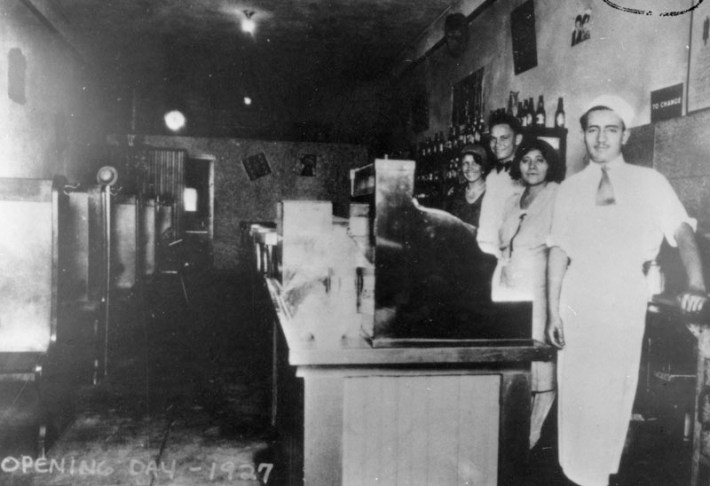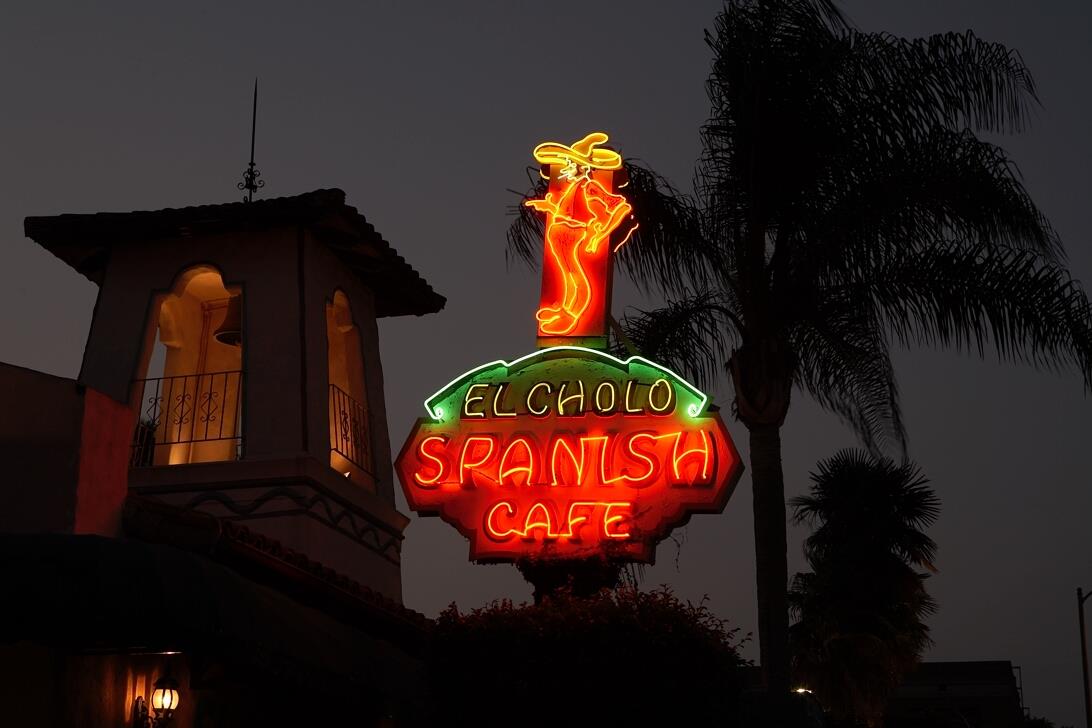I indulge in a big restaurant meal every Saturday. Basically, I go full hulk — I eat whatever I want — and then immediately return to counting calories for the rest of the week. This is how I fight the war against dadbod while enjoying some delicious meals and learning a bit about LA. Although I’m a second-generation Angeleno — my late father grew up in Pasadena during the World War II era — I was born and raised on the East Coast and have only lived here since April, so there is a lot to explore.
Finding a viable eating strategy is important to me because I’m really interested in food, particularly in restaurants and how they comment on social issues. For instance, I’m fascinated by how LA’s Mexican restaurants address the subordinate position that people of Mexican descent occupy in LA and the fact that the city was part of Mexico before the US took it over in 1848 — in other words, how they deal with exploitation and colonialism. The new, foodie restaurants tend to be quite self-aware, but they can get a little overwrought. Last week I was in the mood for something straightforward, so I decided to give El Cholo on Western Avenue in Koreatown a try. Founded in the 1920s, Bill Esparza describes it as an LA “institution.”
The restaurant avoids difficult questions about Mexicanness by focusing on an American version of Mexican food.
El Cholo markets itself as “historic” but really sells nostalgia for a time when the subordination of Mexican-Americans seemed more natural — that is, before the 1960s, when Civil Rights and anti-imperialist activists launched their movements against American racism and colonialism. As a “Spanish cafe,” its name points to a time when Mexican food was sold as Spanish to placate the white supremacist anxieties about “the Mexican.” Its amber-hued interior brings to mind the haciendas of the old California Missions or, more exactly, a period when restaurants nonchalantly used such décor without acknowledging the missions’ racist colonial nature.
Even the menu points backward by indicating the year that each item became part of the repertoire — I ordered chile con carne, nachos, and chicken chimichangas, which were marked 1923, 1959, and 1967, respectively. My dishes, with their beautiful layers of red and green, also evoked the past. Their abundant portions revolved around fat and protein, not carbohydrates, thus gesturing to a time when restaurants relied on less industrialized supply chains and sought to fill you, not provoke carb-induced eating frenzies. The restaurant avoids difficult questions about Mexicanness by focusing on an American version of Mexican food. My entrees all originated north of the border established by the Treaty of Guadalupe Hidalgo.

The nostalgia resonated with me. The walls of El Cholo are full of old timey family photos of dashing, light-skinned people that look like people I have seen in pictures of my own family. In fact, as I was studying one of them, I realized that my father probably dined at El Cholo when he was young and could have sat at the same booth. A WASP born in 1930, during an age of brutally aggressive white supremacy, my father would have found it natural to go out for “Spanish” food — this culinary blackface would have fit comfortably with a range of strategies that people like him used to obscure and protect racial hierarchies. Likewise, my dad being from an upper middle class family, the restaurant’s homey-ness would have reinforced his sense that the world revolved around nourishing his aspirations. I wondered if my grandfather might have stopped there with him while driving my dad down to Baja California, where he took him to lose his virginity in a Tijuana brothel, as my father once nonchalantly told me.
Of course the context is different now. Outside of El Cholo, Koreatown feels as connected to Seoul as to the US, and it is one among many neighborhoods remade by the city’s non-white population. Also, inside, I noticed a large number of Black, multi-generational families who looked like they were partaking in a ritualized outing to the restaurant, which I’m learning is an LA tradition.
Obviously the restaurant takes a conservative position in what we know as the ‘culture wars.’
My interactions with my waiter all transpired in Spanish. He was a tall, light-skinned guy about my age. We laughed about trying to avoid weight gain (it turns out that he also goes full hulk, just on Sundays not Saturdays). He asked me how I came to speak Spanish, and I explained that I learned the language while leading an academic program in Mexico City years ago. He mentioned that he had only been to Mexico once, while on vacation. All of these things made El Cholo’s nostalgia feel more campy than menacing. Indeed, I was in good spirits after I paid my bill and shook hands with the waiter. I was thinking about returning before I even got to the door.
But my spirits darkened when I realized that my father might have also bounded out of there years ago, feeling similarly contented and satiated. I imagined walking in his footsteps (literally) and wondered if the restaurant had calmed my anxieties about my place in the world much as it might have once coddled his. Was this why I was so comfortable and willing to let the restaurant off the hook? With Trump in office, there is no doubt that the racist systems that existed during my father’s time remain virulent and dangerous.
As I stepped out into the midday sun, I felt surprised that El Cholo had elicited such complicated feelings, which are supposed to be the material of trendier, artsy places. Obviously the restaurant takes a conservative position in what we know as the "culture wars,” and one could argue that other restaurants, like Guelaguetza or Chiguacle, for example, assume an anti-colonial posture by making pre-Conquest foods central to their offerings. What is not clear to me is how exactly we should respond: should we condemn El Cholo for the stand that it takes or should we celebrate it for transparently (and unwittingly) highlighting unresolved social problems?
When we go to a museum we don’t expect to see things we like, and similarly El Cholo provides an opportunity to keep troubling issues like these in focus, even when enjoying a chile con carne on your hulk day.







